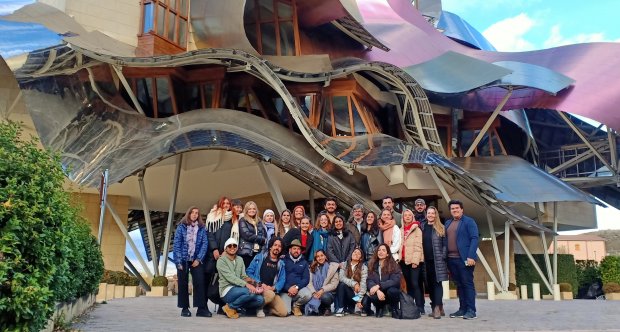Erasmus Mundus Master's degree in Transitions and Innovations in Enotourism (WINTOUR) - 8th edition
Academic information
Double qualification
Once the 120 ECTS credits of the master's degree have been completed, candidates will be awarded two qualifications:
- A joint master's degree from the Universitat Rovira i Virgili and the Universidade do Porto
- A national master's degree from the Université de Bordeaux
External practices
The programme has three different periods of periods of compulsory internships:
- Second semester: an internship in a public organisation or private company in the field of wine tourism, with a duration of at least four weeks in September.
- Third semester: an internship at a winery to take part in the harvesting and winemaking process for three to four weeks during the months of August and September.
- Fourth semester: internship and writing of master's degree final project between February and June with a duration of four months.
Master's degree final project
The Master's Degree Final Project includes the last internship period, in which students must draft a project related to wine tourism and the competences acquired during the master's programme.
Mobility
As an Erasmus Mundus programme, one of the central elements of the WINTOUR master is precisely its international mobility.
The training programme requires students to study a semester at each of the three universities: the first at Rovira i Virgili University -Tarragona, the second at University of Bordeaux, and the third at University of Porto. During these three semesters, it is expected that students also participate in field trips which may involve a short-term mobility to other regions or neighbouring countries.
Furthermore, during the last semester of the master students undertake an internship in one of the private or public organisations associated to the Consortium, being them located in European countries (e.g. Italy, Greece, France, Portugal or Spain) or even outside the European Union.
Quality
Specific grants
Applicants can register as self-funded students or as Erasmus Mundus scholarship holders.
- For the 2024-2029 period, there are between fifteen and nineteen Erasmus Mundus scholarships (EMJM) for each edition of the master's, which cover some student expenses during the two years of the programme:
- Student expenses such as registration fees, full insurance coverage and other compulsory costs during both years of the master's degree.
- A monthly allowance of €1,400 for living, travel and moving.
- URV Master's Grants.
- Grants & Scholarships offered by the WINTOUR Consortium and partner universities.




